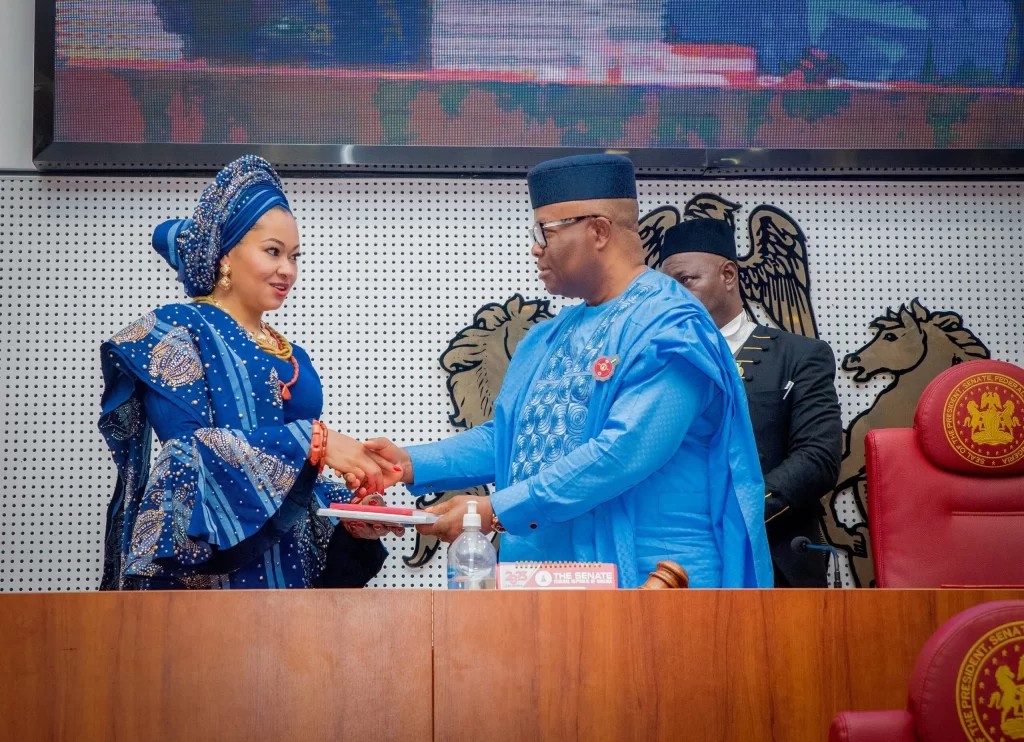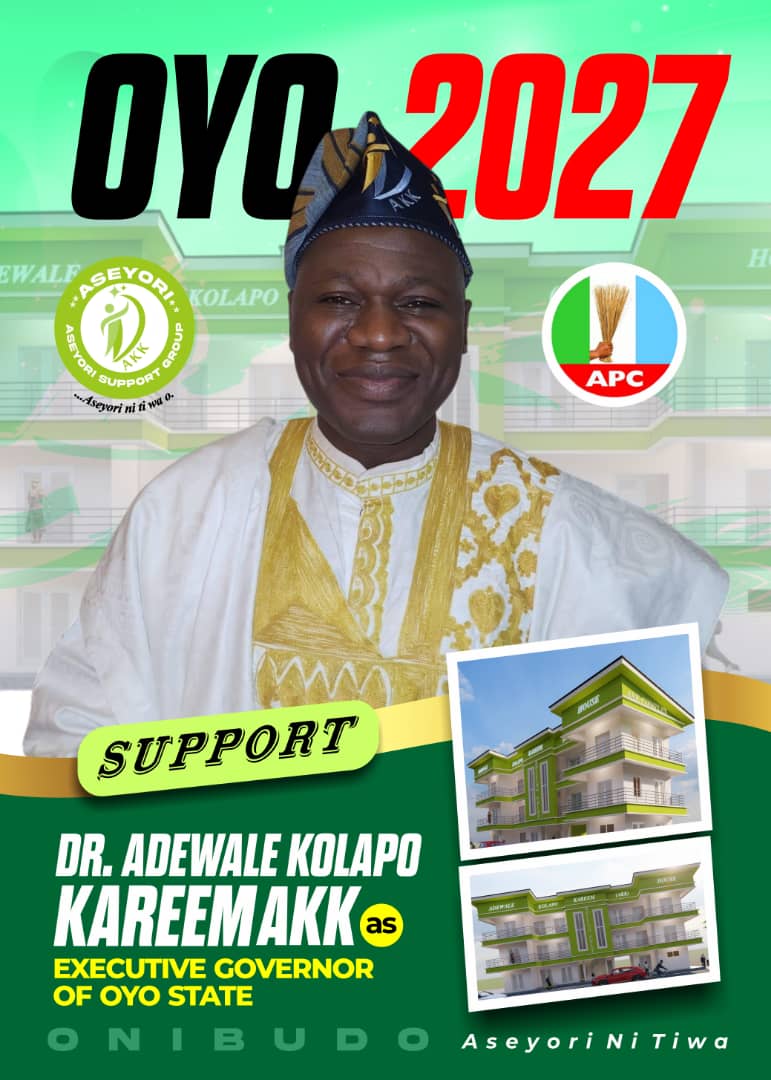
Senator Natasha Akpoti-Uduaghan (Kogi Central) has extended an olive branch to Senate President Godswill Akpabio — inviting him and other lawmakers to the inauguration of constituency projects in Kogi State.
This is coming weeks after her return from a six-month suspension.
The invitation was contained in a letter read by Akpabio during Thursday’s plenary.

“In marking my second anniversary as serving Senator of the Federal Republic of Nigeria, I wish to invite fellow distinguished senators to join me for projects commissioning in Kogi State,” the letter partly read.

According to the invitation, the event will hold on Sunday in Ihima, Okene Local Government Area, with the meeting point fixed at her residence.

For lawmakers travelling by air, the senator advised that the Obajana airstrip could be used before proceeding by road to Ihima.
Akpabio responded warmly after reading the letter, saying, “Congratulations in advance.”
The gesture marks a turning point in a once-bitter rift between the two senators.
Akpoti-Uduaghan was suspended on March 6, 2025, following a heated face-off with the Senate leadership over the reallocation of her seat during the plenary.
Her protest at the time led to accusations of “gross misconduct” and a walkout that drew national attention.
She accused Akpabio of running the upper chamber with a “dictatorial hand,” while the Senate President insisted her actions breached parliamentary decorum.
Although her suspension expired in September, she only regained access to her office two weeks ago after a months-long standoff and court filings.
Since her reinstatement, Akpoti-Uduaghan has gradually resumed participation in plenary sessions — including contributing an amendment to the Criminal Code (Amendment) Bill 2025 last week — but Thursday’s invitation read by Akpabio signals the clearest sign yet of rapprochement between the two camps.
Political observers see the gesture as a strategic reconciliation move by the fiery Kogi senator, whose return to the Senate had reignited debates about gender representation, dissent, and discipline within Nigeria’s upper legislative chamber.